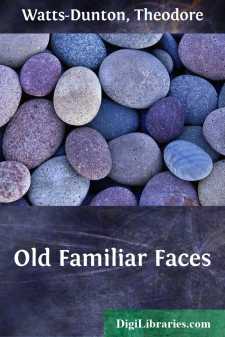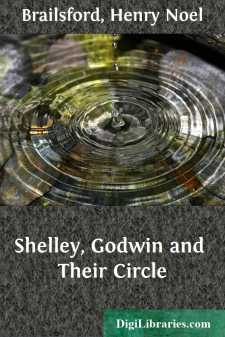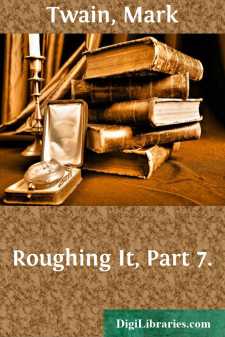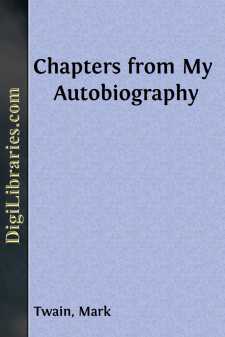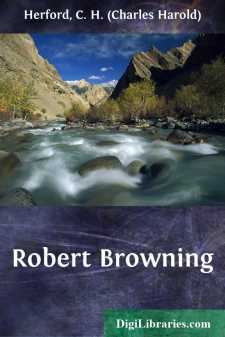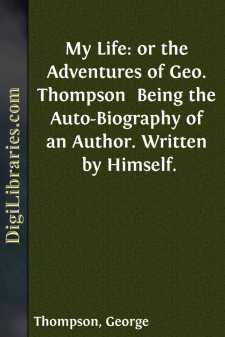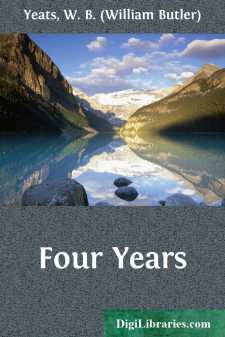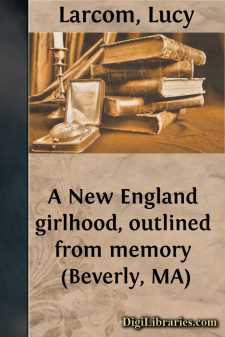Biography & Autobiography
- Adventurers & Explorers 15
- Artists, Architects, Photographers 16
- Business 2
- Composers & Musicians 14
- Criminals & Outlaws 5
- Editors, Journalists, Publishers 6
- Educators 1
- Entertainment & Performing Arts 3
- General 73
- Health, Exercise & Fitness 1
- Historians 3
- Historical 83
- Law Enforcement 1
- Lawyers & Judges 3
- Literary
- Medical 7
- Military 48
- Naturalists, Gardeners, Environmentalists 8
- Personal Memoirs & Diaries 226
- Philosophers 3
- Political 9
- Presidents & Heads of State 38
- Religious 38
- Rich & Famous 27
- Scientists 13
- Women 31
Literary Books
Sort by:
by:
Clara Barrus
OUR FRIEND JOHN BURROUGHS We all claim John Burroughs as our friend. He is inextricably blended with our love for the birds and the flowers, and for all out of doors; but he is much more to us than a charming writer of books about nature, and we welcome familiar glimpses of him as one welcomes anything which brings him in closer touch with a friend. A clever essayist, in speaking of the "obituary...
more...
INTRODUCTION. For some years before his death it was the intention of Theodore Watts-Dunton to publish in volume form under the title of ‘Old Familiar Faces,’ the recollections of his friends that he had from time to time contributed to The Athenæum. Had his range of interests been less wide he might have found the time in which to further this and many other literary projects he had formed; but...
more...
CHAPTER I THE FRENCH REVOLUTION IN ENGLAND The history of the French Revolution in England begins with a sermon and ends with a poem. Between that famous discourse by Dr. Richard Price on the love of our country, delivered in the first excitement that followed the fall of the Bastille, and the publication of Shelley's Hellas there stretched a period of thirty-two years. It covered the dawn, the...
more...
by:
Mark Twain
CHAPTER LXI. One of my comrades there—another of those victims of eighteen years of unrequited toil and blighted hopes—was one of the gentlest spirits that ever bore its patient cross in a weary exile: grave and simple Dick Baker, pocket-miner of Dead-House Gulch.—He was forty-six, gray as a rat, earnest, thoughtful, slenderly educated, slouchily dressed and clay- soiled, but his heart was finer...
more...
by:
Mark Twain
INTRODUCTION. I intend that this autobiography shall become a model for all future autobiographies when it is published, after my death, and I also intend that it shall be read and admired a good many centuries because of its form and method—a form and method whereby the past and the present are constantly brought face to face, resulting in contrasts which newly fire up the interest all along, like...
more...
CHAPTER I. EARLY LIFE. PARACELSUS. The Boy sprang up ... and ran,Stung by the splendour of a sudden thought.— A Death in the Desert. Dass ich erkenne, was die WeltIm Innersten zusammenhält.— Faust. Judged by his cosmopolitan sympathies and his encyclopædic knowledge, by the scenery and the persons among whom his poetry habitually moves, Browning was one of the least insular of English...
more...
by:
George Thompson
In which the author defineth his position. It having become the fashion of distinguished novelists to write their own lives—or, in other words, to blow their own trumpets,—the author of these pages is induced, at the solicitation of numerous friends, whose bumps of inquisitiveness are strongly developed, to present his auto-biography to the public—in so doing which, he but follows the example of...
more...
CHAPTER 1. CHAUCER'S TIMES. The biography of Geoffrey Chaucer is no longer a mixture of unsifted facts, and of more or less hazardous conjectures. Many and wide as are the gaps in our knowledge concerning the course of his outer life, and doubtful as many important passages of it remain—in vexatious contrast with the certainty of other relatively insignificant data—we have at least become...
more...
At the end of the eighties my father and mother, my brother and sisters and myself, all newly arrived from Dublin, were settled in Bedford Park in a red-brick house with several wood mantlepieces copied from marble mantlepieces by the brothers Adam, a balcony, and a little garden shadowed by a great horse-chestnut tree. Years before we had lived there, when the crooked, ostentatiously picturesque...
more...
by:
Lucy Larcom
BY THE RIVER. IT did not take us younger ones long to get acquainted with our new home, and to love it. To live beside a river had been to me a child's dream of romance. Rivers, as I pictured them, came down from the mountains, and were born in the clouds. They were bordered by green meadows, and graceful trees leaned over to gaze into their bright mirrors. Our shallow tidal creek was the only...
more...



